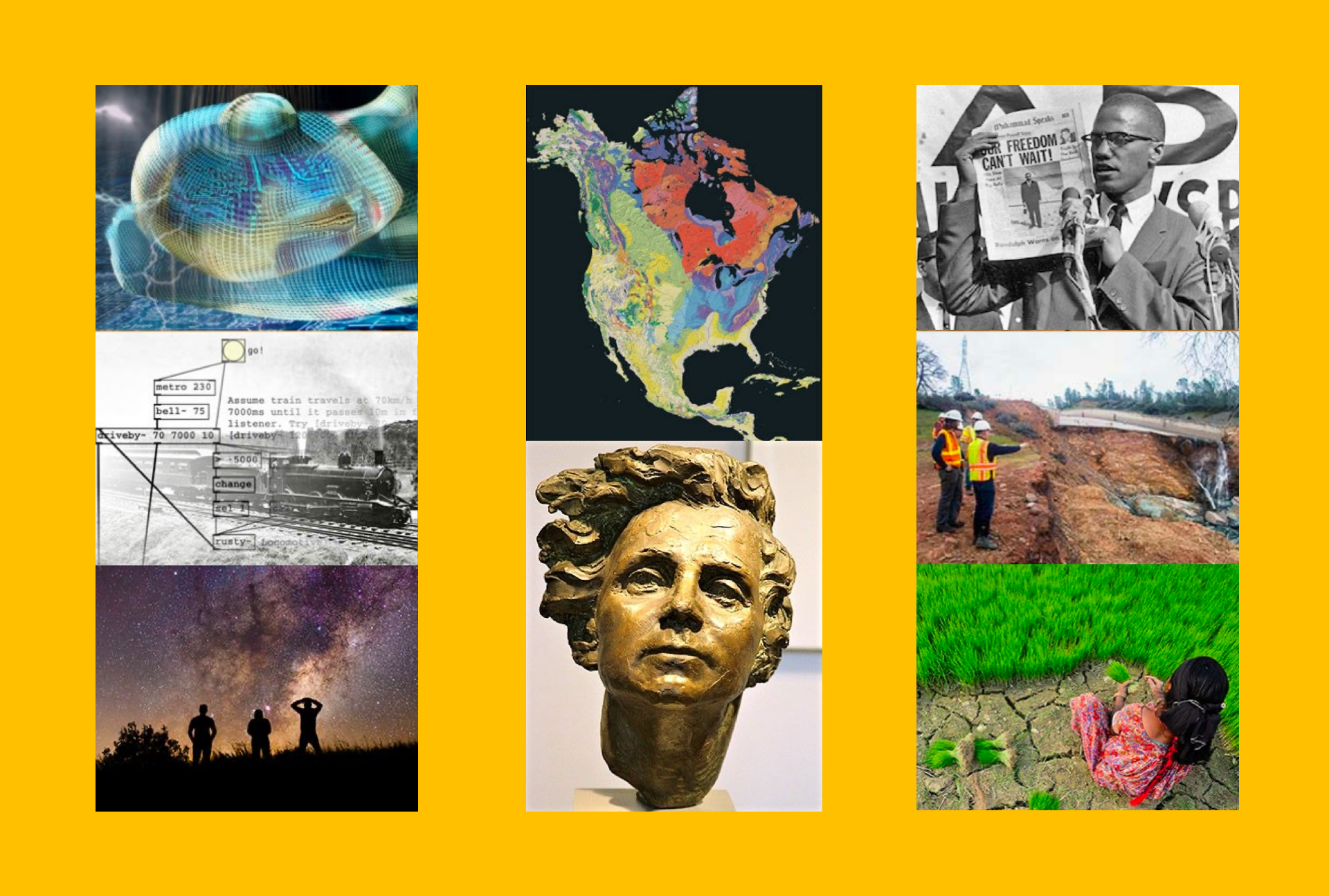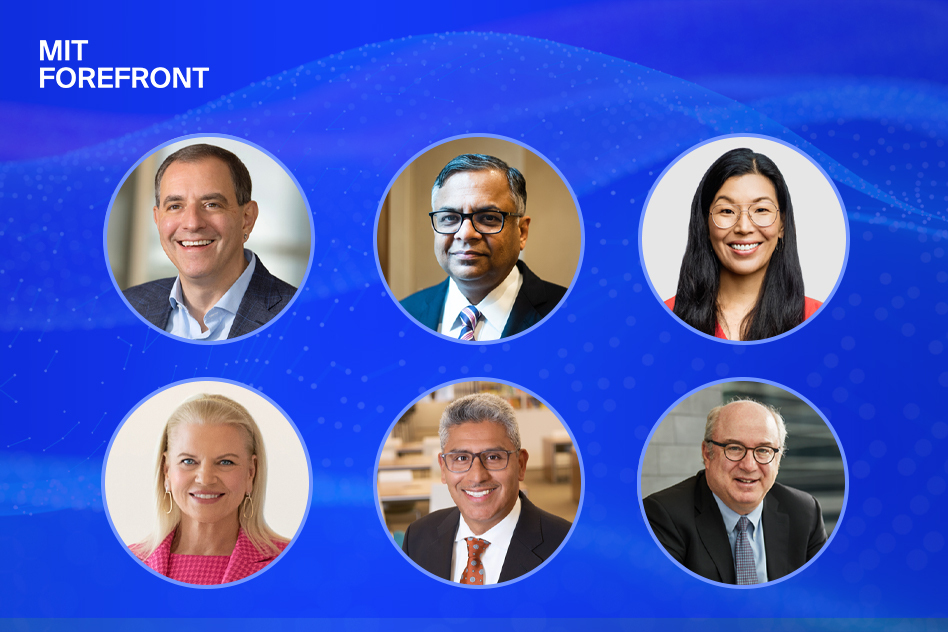How MIT OpenCourseWare became an educational resource to millions around the world
Celebrating 20 remarkable years, MIT OCW looks to the future, informed by learning needs underscored by the Covid-19 pandemic.

“It is typical of our faculty to come up with something as bold and innovative as this," said then-MIT president Charles Vest at a special gathering of community members and press in April 2001. “OpenCourseWare looks counterintuitive in a market-driven world. It goes against the grain of current material values. But it really is consistent with what I believe is the best about MIT ... It expresses our belief in the way education can be advanced — by constantly widening access to information and by inspiring others to participate."
In the 20 years since it began, MIT OpenCourseWare has become a pillar of the open education community, an exemplar of the MIT ethos, and an invaluable resource to millions of learners around the world. People of all ages and all walks of life have used the lectures, videos, problem sets, and other content to pursue their curiosity and passions, improve their careers, and get a leg up in their studies. Now, the team looks to the future with a clear sense of purpose, informed by the learning needs underscored by the Covid-19 pandemic.
OpenCourseWare launched during the early days of Web 2.0 and a growing — but highly commercialized — interest in e-learning. Charles Vest had commissioned the Lifelong Learning Committee, asking its members to propose an educational technology project that would extend MIT's reach beyond classrooms. That committee’s recommendation was to launch OpenCourseWare, a website offering all of MIT’s course materials, available for free to anyone. Within one year, OCW had published a pilot website with 50 courses and attracted worldwide acclaim. Today, OCW offers materials from over 2,570 courses spanning the MIT graduate and undergraduate curriculum, from 1,735 MIT faculty and lecturers from 33 academic units across all five schools, including syllabi, lecture notes, problem sets, assignments, and audiovisual content including recorded lectures. To date, OCW has been a resource for over 210 million unique users, with over 70 percent of users in 2020 coming from outside the United States.
Professor Dick KP Yue, who chaired the Lifelong Learning Committee, described the impetus for the project in the proposal: "In the digital age, institutions like MIT have a responsibility — and an opportunity — to impact learners far beyond their campuses. OCW embodies MIT's commitment to constantly widening access to knowledge."
The value of that commitment is borne out by learners who have shared their stories over the years — from Tooba Siddiqui in Pakistan, who had access to education through OCW when other doors were closed to her, to Anita Moreno in Nevada, who used OCW to keep up with her studies following a brain aneurysm. “I cannot emphasize enough how this site has boosted my confidence, that I am still able to comprehend and succeed in an engineering program,” says Moreno.
Today, Professor Krishna Rajagopal, dean for digital learning, says, “It was the best thing MIT could have done at that moment for MIT and for the world."
A revolution in the making
From its modest and experimental beginning, OCW sparked a new era in the growing open-education movement. Beyond the courses themselves, OCW has had a broad impact on the way online learning resources have evolved in higher education, setting the template for other colleges and universities undertaking similar efforts and helping launch the open education resources (OER) revolution.
”Free access to knowledge is a powerful foundation for progress,” says OCW Director Curt Newton, “but it’s not the whole picture. OER that lifts up everyone’s right to contribute to shared knowledge, and builds everyone’s capacity to extend that knowledge, is creating new paths for us to work together on the world’s most important, complex, and rapidly evolving challenges.”
It helps that OCW and Creative Commons share family bonds. Launched the same year, electrical engineering and computer science Professor Hal Abelson was a member of the founding teams for both, and helped arrange for OCW to be the first institutional project to use Creative Commons licenses, In turn, OCW’s early adoption of Creative Commons licenses helped demonstrate their usefulness and lent credence to the burgeoning open movement.
In 2005, OCW helped launch the OpenCourseWare Consortium (now Open Education Global), whose network of over 300 higher education institutions and related organizations have freely shared many thousands of courses, open textbooks, and other resources, and collaborated to foster widespread adoption of OERs.
At MIT, OCW has paved the way for other innovative new learning platforms, such as MITx and MicroMasters, Open Learning Library, and professional and executive learning programs.
Integrating teachers into the experience of OCW was a key priority very early on. (Indeed, the faculty committee originally envisioned OCW as being used by educators almost exclusively — its widespread popularity among students and lifelong learners was a welcome surprise.) Educators around the world have shared their experiences of using OCW to master new content or inspire and engage students. In 2013, the team launched the OCW Educator program; now, hundreds of OCW courses include Instructor Insights sections where faculty share how they have taught their courses through text, video, and most recently, through the Chalk Radio podcast.
“A core tenet of MIT’s mission is to create and share knowledge, empowering our own community and myriad others to bring this knowledge to bear on the world’s great challenges. From its inception, OpenCourseWare has offered a new and substantial way of realizing that mission in the 21st century,” says Rajagopal. “For individual learners, OCW is a means to expand understanding and satisfy curiosity, to support personal and professional goals, or change in their communities; for educators, it's a resource library to help augment and strengthen their curricula, enriching the experience of so many students; for educational organizations, it’s an invitation to nurture a shared commitment to open knowledge. OCW provides invaluable resources for millions and paves the way for others to contribute in their own ways to sharing and using knowledge for the betterment of humankind.”
Living legacy
The courses on OCW have also come to reflect the way that MIT, and its relationship with the world, has grown and changed over the last two decades. Perhaps it’s no surprise that 6.0001 (Introduction to Computer Science and Programming in Python) and 18.06 (Linear Algebra) are consistently among the most-viewed courses. But the ebb and flow of traffic on OpenCourseWare reflects topics in the zeitgeist, too. When Esther Duflo and Abhijit Banerjee won the Nobel Prize for Economics in 2019, Duflo’s OCW course “The Challenge of World Poverty” spiked in popularity as people all over the world sought to understand her worldview and learn from her. A similar spike occurred with Professor Gary Gensler’s graduate-level course “Blockchain and Money” when he was nominated to serve in the Biden administration earlier this year.
As MIT faculty have endeavored to offer students a nuanced understanding of our complex world, so too have the materials on OCW grown more expansive. Learners around the world can now delve into “Ethics for Engineers: Artificial Intelligence,” “Queer Cinema and Visual Culture,” and “Black Matters: Introduction to Black History” alongside engineering, math, and science standbys.
“As instructors, we’re excited about what we get to do in the classroom with our students, and also it’s wonderful to have the opportunity to expand beyond the classroom, and to actually make the material that we develop for students available more broadly,” says Amah Edoh, assistant professor of anthropology and African studies and a member of the OCW Faculty Advisory Committee, whose courses “Africa and the Politics of Knowledge” and “Global Africa: Creative Cultures” are on OCW.
She also appreciates the role OCW plays in sharing MIT expertise with the world beyond engineering and science. “My particular investment in this has been around making African studies more visible at MIT ... It really changes the image, the idea that others have of MIT. I think it’s particularly important to show that we also have courses in African studies specifically. Oftentimes Africa, African countries, African people are seen not as agents, but rather as a space where you go to solve problems. So to show that we can engage knowledge production in and on Africa critically, to me is very important.”
In capturing course materials and videos, OCW does more than open windows into MIT for global learners; it also provides a unique, living archive of teaching at MIT. Alumni can revisit favorite classes or share them with colleagues, peers, or kids looking into college. High-schoolers can get a sense of what courses in different fields will entail. Faculty whose course materials are preserved on OCW have an artifact of their teaching legacy, for everyone, forever. Consider “How to Speak,” a OCW video of the late Professor Patrick Winston’s beloved Independent Activities Period course, which he taught for 40 years before passing away in 2019; posted in December 2019, it has now been viewed 3.3 million times.
Looking forward
OpenCourseWare enters its third decade on the heels of unprecedented global disruption. During the first months of the Covid-19 pandemic, when schools and businesses closed and billions of people around the world sheltered in place at home, traffic to OCW spiked to 2.2 million visits a month, a 75 percent increase from 2019. Since then, site visits have settled into a 15 percent uptick in use. More importantly, the massive shift to remote and hybrid learning over the past year has brought into sharp relief both the opportunities of online education and the disparities of access, technology, and equity for learners everywhere. In charting a course for the future, the OCW team has the opportunity to draw on 20 years of experience in addressing the issues brought to the fore in 2020.
“The first years of OCW have been primarily about the power of access,” says Newton. “A core principle of where we’re heading in our upcoming program is the progression from giving access to knowledge to really driving towards educational equity.”
Later this year, OpenCourseWare will launch its NextGen platform and program. Its three principal aims are offering a vibrant reflection of MIT education as it evolves, delivering a more user-focused design and experience, and broadening access and usability to a larger global population. The NextGen platform will support a more dynamic experience of OCW’s robust multimedia content, allowing users to seamlessly search, browse, download, remix, and redistribute all materials more easily. Individuals can get a sneak peek of the new OCW and sign up to be a beta tester.
Another major pillar of the NextGen platform is mobile optimization, a user-friendly interface to provide readable, searchable content on any device. With 92.6 percent of internet users around the world using mobile devices at least some of the time, and with smartphone use growing at a rate of 7 percent per year, this change represents not only a catch-up to current need but also a purposeful approach to finding and engaging with future learners.
“As we look at the next year, five years, 20 years of OpenCourseWare, our goal is to keep pace with the evolving artifacts of MIT teaching and learning, offering the best possible experience to our growing community of learners,” says Newton. “We are also committed to continually reinvesting in the OER community — working collaboratively to share resources and engage with the people and organizations at the vanguard of access and equity in education.”
MIT Open Learning will host an online celebration of OpenCourseWare’s 20th anniversary on Wednesday, April 7, from noon to 1 p.m. EDT featuring OCW leadership, MIT faculty, and learners sharing stories and ideas about the past, present, and future of open education, at MIT and beyond.




































